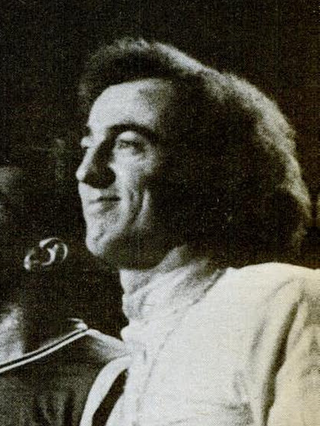
Richard Quentin Laird was an Irish musician, best known as the bassist and a founding member of the jazz fusion band Mahavishnu Orchestra, with which he performed from 1971 to 1973.

John McLaughlin, also known as Mahavishnu, is an English guitarist, bandleader, and composer. A pioneer of jazz fusion, his music combines elements of jazz with rock, world music, Indian classical music, Western classical music, flamenco, and blues. After contributing to several key British groups of the early 1960s, McLaughlin made Extrapolation, his first album as a bandleader, in 1969. He then moved to the U.S., where he played with drummer Tony Williams's group Lifetime and then with Miles Davis on his electric jazz fusion albums In a Silent Way, Bitches Brew, Jack Johnson, Live-Evil, and On the Corner. His 1970s electric band, the Mahavishnu Orchestra, performed a technically virtuosic and complex style of music that fused electric jazz and rock with Indian influences.

The Mahavishnu Orchestra was a jazz fusion band formed in New York City in 1971, led by English guitarist John McLaughlin. The group underwent several line-up changes throughout its history across its two periods of activity, from 1971 to 1976 and from 1984 to 1987. With its first line-up consisting of musicians Billy Cobham, Jan Hammer, Jerry Goodman, and Rick Laird, the band received its initial acclaim for its complex, intense music consisting of a blend of Indian classical music, jazz, and psychedelic rock as well as its dynamic live performances between 1971 and 1973. Many members of the band have gone on to acclaimed careers of their own in the jazz and jazz fusion genres.
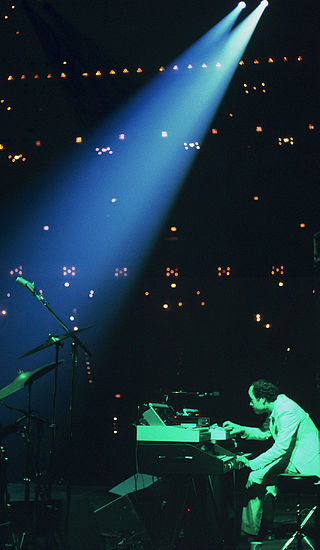
Jan Hammer is a Czech-American musician, composer, and record producer. He first gained his most visible audience while playing keyboards with the Mahavishnu Orchestra during the early 1970s, as well as his film scores for television and film including "Miami Vice Theme" and "Crockett's Theme", from the 1980s television program Miami Vice. He has continued to work as both a musical performer and producer.
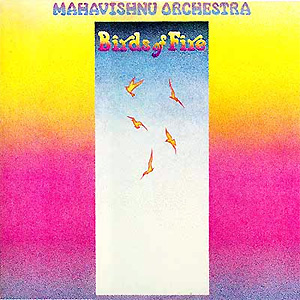
Birds of Fire is the second studio album by jazz fusion band the Mahavishnu Orchestra. It was released on January 3, 1973, by Columbia Records and is the last studio album released by the original band line-up before it dissolved.

The Inner Mounting Flame is the debut studio album by American jazz-rock fusion band Mahavishnu Orchestra, recorded in August 1971 and released later that year by Columbia Records. After their formation, the group performed several debut gigs before they entered the studio to record their first album featuring all original material written by guitarist John McLaughlin.
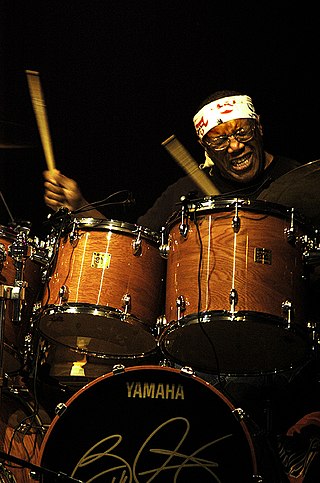
William Emanuel Cobham Jr. is a Panamanian–American jazz drummer who came to prominence in the late 1960s and early 1970s with trumpeter Miles Davis and then with the Mahavishnu Orchestra.

Jerry Goodman is an American violinist known for playing electric violin with The Flock and the jazz fusion ensemble Mahavishnu Orchestra.

Ken Scott is a British record producer and engineer known for being one of the five main engineers for the Beatles, as well as engineering Elton John, Pink Floyd, Procol Harum, Mahavishnu Orchestra, Duran Duran, the Jeff Beck Group, Supertramp and many more.

Apocalypse is the Mahavishnu Orchestra's fourth album and third studio album, released in 1974.

Visions of the Emerald Beyond is the fifth album by the jazz fusion group Mahavishnu Orchestra, and the second released by its second incarnation.

The Flock was an American, Chicago-based jazz rock band, that released two albums on Columbia Records in 1969 and 1970. The Flock did not achieve the commercial success of other Columbia jazz-rock groups of the era such as Chicago and Blood Sweat & Tears, but were recognized for featuring a violin prominently in their recordings. The violinist, Jerry Goodman, went on to become a member of Mahavishnu Orchestra and a solo artist.

Between Nothingness & Eternity is the first live album by jazz fusion band Mahavishnu Orchestra, released on November 1973 by Columbia Records. According to the Mahavishnu Orchestra Gigs listing by Walter Kolosky, it was recorded live at the Schaefer Music Festival, held in Central Park, New York, on August 17 and 18, 1973, even though available recordings indicate that all of the material from the album was taken from the second night only. Originally, Mahavishnu Orchestra's third album was to be a studio effort, recorded in June 1973 at Trident in London, but was scrapped during the final days of the project; the live album, containing versions of three of the original six tracks, was released instead as the last album during the period of the original line-up of the band. The original studio album was released in 1999 as The Lost Trident Sessions.
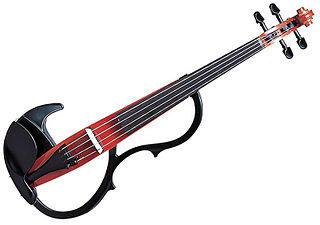
Rock violin is rock music that includes violin in its instrumental lineup. This includes rock music only and does not include classical style music using melodic motifs from rock.

Like Children is an album by Jan Hammer and Jerry Goodman. It was released in 1974 by Nemperor Records. Both musicians were members of the Mahavishnu Orchestra.

Unreleased Tracks from Between Nothingness & Eternity is a live album by the Mahavishnu Orchestra, first released in 2011 as part of The Complete Columbia Albums Collection boxset, along with the other albums by the first line-up of the band, including The Lost Trident Sessions. As the title explains, the album contains other selections from the two Central Park shows from August 1973 from which the live album Between Nothingness and Eternity was culled.

The Complete Columbia Albums Collection is a box set by Mahavishnu Orchestra. It came out in 2011 and it contains remastered versions of all the albums by the first incarnation of the band, including The Lost Trident Sessions, which was to be the band's third studio album, recorded in 1973 but only released in 1999. Additionally, the first album, The Inner Mounting Flame, contains a bonus live track; the live album Between Nothingness & Eternity was remixed and expanded; and the box includes a previously unreleased live CD called Unreleased Tracks from Between Nothingness & Eternity. The box comes with a 16-page booklet with short liner notes by John McLaughlin and Richard Seidel.
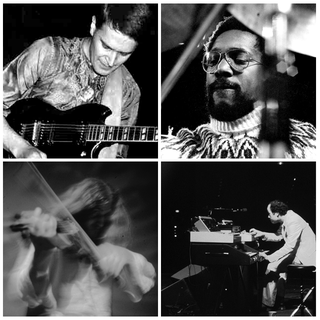
The discography of Czech-American musician Jan Hammer consists of 25 albums with Hammer as the lead artist, as well as several singles and a large number of collaborations with jazz and rock musicians, such as John McLaughlin, Jeff Beck, Al Di Meola, Mick Jagger, Carlos Santana, Stanley Clarke, Tommy Bolin, Neal Schon, Steve Lukather, and Elvin Jones among many others. He has composed and produced at least 14 original motion picture soundtracks, the music for 90 episodes of Miami Vice and 20 episodes of the popular British television series Chancer.
The Inner Mounting Flame Tour was the first concert tour by the jazz fusion band Mahavishnu Orchestra.

Live in San Francisco is a live album by guitarists John McLaughlin and Jimmy Herring. It was recorded at The Warfield in San Francisco, California, on December 8th, 2017, and was released in 2018 by Abstract Logix. The musicians are joined by an ensemble that combines McLaughlin's band the 4th Dimension with Herring's band the Invisible Whip.



















